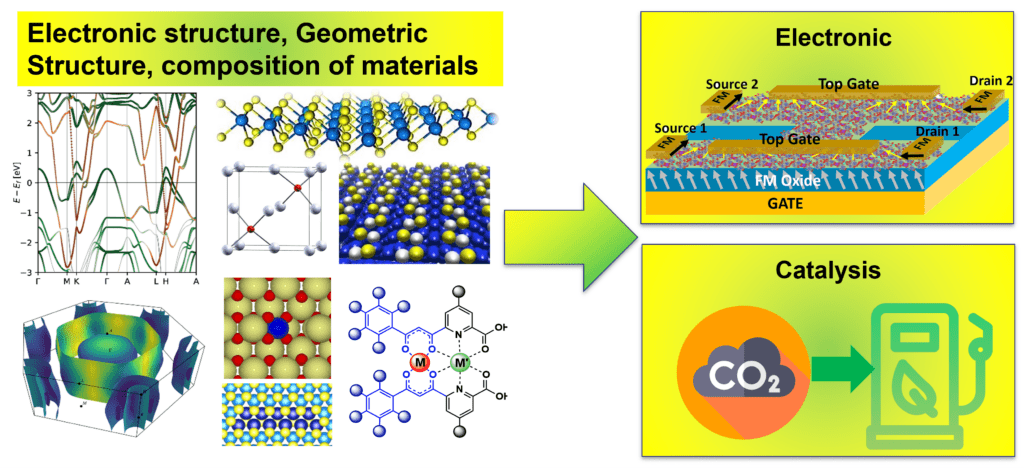The CoMET research group’s interests focus on the understanding of the fundamental aspects, at the atomistic scale level, that affect and control the behavior of novel energy materials for electronic- and energy-related applications and on the development, implementation, and application of computational methods that are capable of accurately predicting properties of materials. We employ atomistic simulation techniques such as ab initio and classical molecular dynamics, density functional theory (DFT)-based methods, machine learning, and multiscale approaches like kinetic Monte Carlo and microkinetic modeling to bridge atomistic simulations with realistic conditions.

Energy materials are at the heart of technologies that power our future—from clean energy generation to advanced electronics. The CoMET group is dedicated to uncovering the fundamental behaviors of energy materials to inform the design of innovative materials for next-generation applications.
We explore a wide range of research areas, including:
- Electrocatalysis – materials that drive efficient electrochemical reactions.
- Thermocatalysis – materials for heat-driven catalytic processes.
- Energy storage – materials for high performance, sustainable, and affordable energy storage.
- Molecular Electronics – materials enabling nanoscale electronic devices.
- Quantum Devices – materials engineered for quantum technologies.
We are currently looking for Postdoc and Students (Graduate and Undergraduate) to join our team.